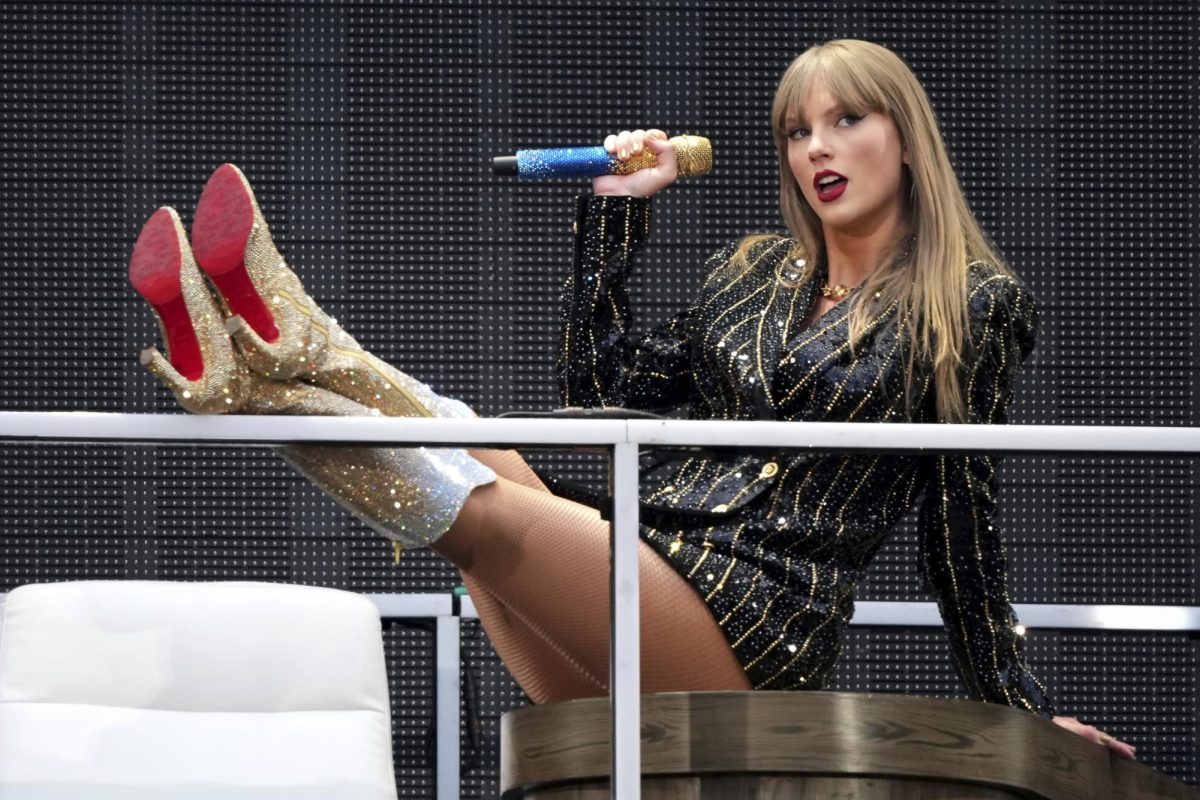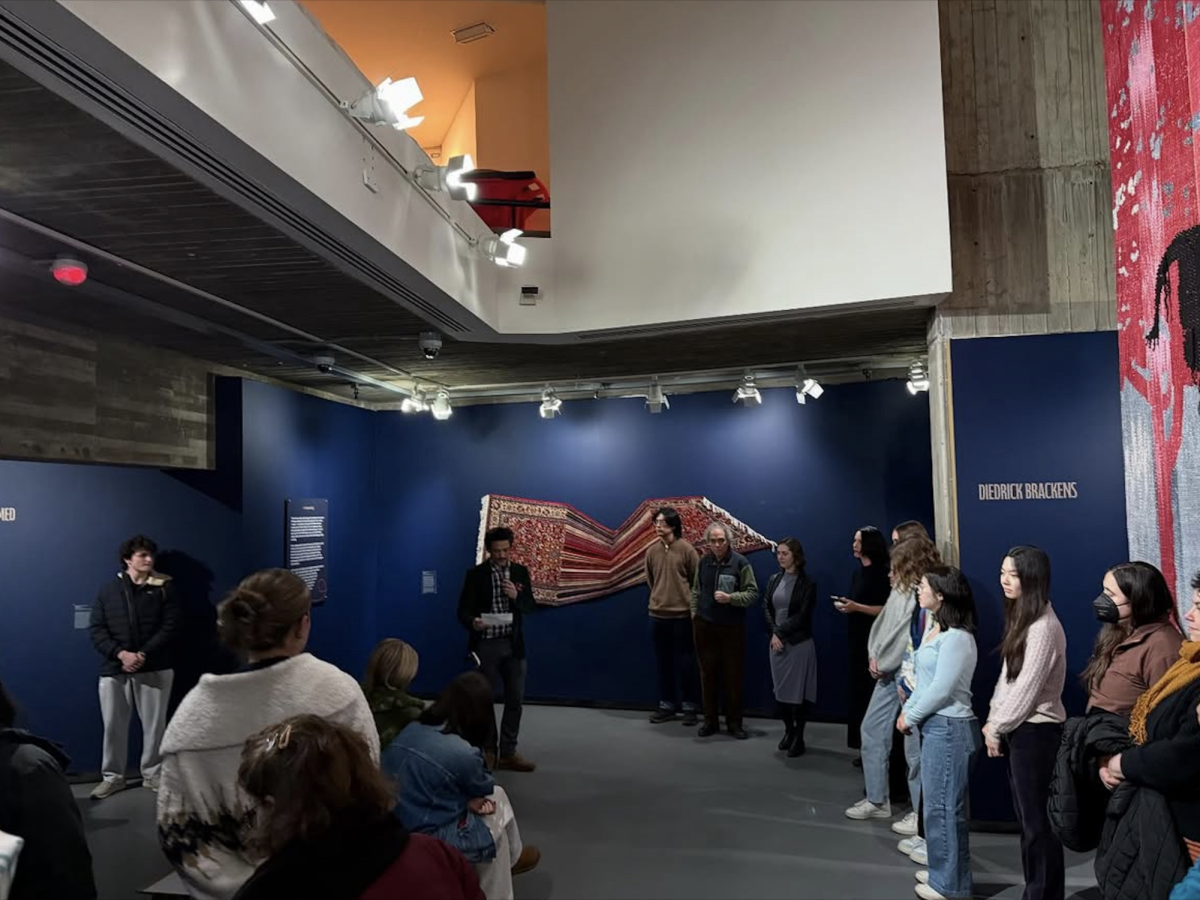As Election Day inches closer, pop culture and politics have begun to intersect with media support from musicians and celebrities. While not a new phenomenon, this year’s endorsements encompass a wide range of pop culture icons and their fans.
Celebrity involvement has influenced politics since the beginning of the 19th century. Known to transform elections and democracy, celebrities can greatly impact elections by directing their fans to vote. Today’s top music artists and social media influencers have diverse fan bases and influence on younger generations, made more prevalent by the volume of content across social media platforms like TikTok, Instagram and X, formerly known as Twitter.
Among the most popular icons, musician Taylor Swift declared that she plans to vote for Vice President Kamala Harris and Minnesota Governor Tim Walz in an Instagram post on Sept. 10 that has accumulated over 10 million likes as of Sept. 24.
“Like many of you, I watched the debate tonight,” Swift wrote. “I’m voting for [Kamala Harris] because she fights for the rights and causes I believe need a warrior to champion them. I think she is a steady-handed, gifted leader and I believe we can accomplish so much more in this country if we are led by calm and not chaos.”
This endorsement has generated attention not only from Swift’s fanbase but also from political commentators and campaigns. After generating over $1 billion in sales from her Eras Tour shows in 2023, Swift has only strengthened her political and economic impact.
Matthew Luttig, associate professor of political science at Colgate University, shared his impression of celebrity endorsements in politics.
“These figures can be especially influential if they go beyond simply endorsing a candidate, and actively try to encourage their supporters — on social media, for instance — to go out and vote,” Luttig said. “Those types of appeals can unquestionably matter, particularly among voters who otherwise might be inclined to stay home.”
Luttig’s political insight emphasizes that celebrity endorsements not only have the potential to influence an election but also urge nonvoters to engage in elections. In the same Instagram post, Swift ended her message by promoting political engagement of any form.
“I’ve done my research, and I’ve made my choice,” Swift wrote. “Your research is all yours to do, and the choice is yours to make. I also want to say, especially to first time voters: Remember that in order to vote, you have to be registered! I also find it’s much easier to vote early.”
Earlier, in 2018, Taylor Swift publicly expressed her political beliefs to her millions of followers, sharing that she would support Democratic candidate Phil Bredesen for Senate and Jim Cooper for House of Representatives. Similar to her post for the 2024 election, this message encouraged voting participation. Within 24 hours, the voter register skyrocketed by 65,000 participants.
First-year Isabel Levi pointed out how Swift’s background might influence voting turnout.
“Taylor Swift grew up in Pennsylvania, and Pennsylvania is a big swing state,” Levi said.
According to Levi, this identity could motivate people in her community to rush to the ballots. With its notorious role as an electoral battleground state, Pennsylvania’s Swift fans could tilt the election.
However, first-year Leah Gans noted that data can misconstrue the influence of celebrities’ political content, as it is hard to assert causality.
“There was a huge increase in voter registration after Taylor Swift’s endorsement, but that was also the day of the debate,” Gans said. “I just don’t think the increase in voting registration should be owed to Taylor Swift. The debate is an online publicized event because it lets people learn about the candidates and encourages them to vote. It might be Taylor, but it may not be.”
Gans added that Swift should not be praised for the increase in voting registration because it could have also been a result of people watching the debate.
First-year student Lauren Klebba also commented on the power celebrities have in politics, noting how influence might not always convince voters of a specific candidate.
“They should use their platform to influence people to vote, but it is up to the individual to decide who they want to vote for,” Klebba said.
Swift has no obligation to endorse a political party, but she has the potential to use her platform to spark change. Closing her Instagram post with “signing off with love and hope,” Swift emphasized community and positivity to her fans.
Will these efforts affect the course of the presidential election? Or, for the Swifties out there, will this reinforce Swift’s “Miss Americana” legacy? We will see on Nov. 5.



















